The best music streaming services 2025: Spotify, Apple Music, Tidal, Qobuz, more
The top music streaming services for every kind of music fan
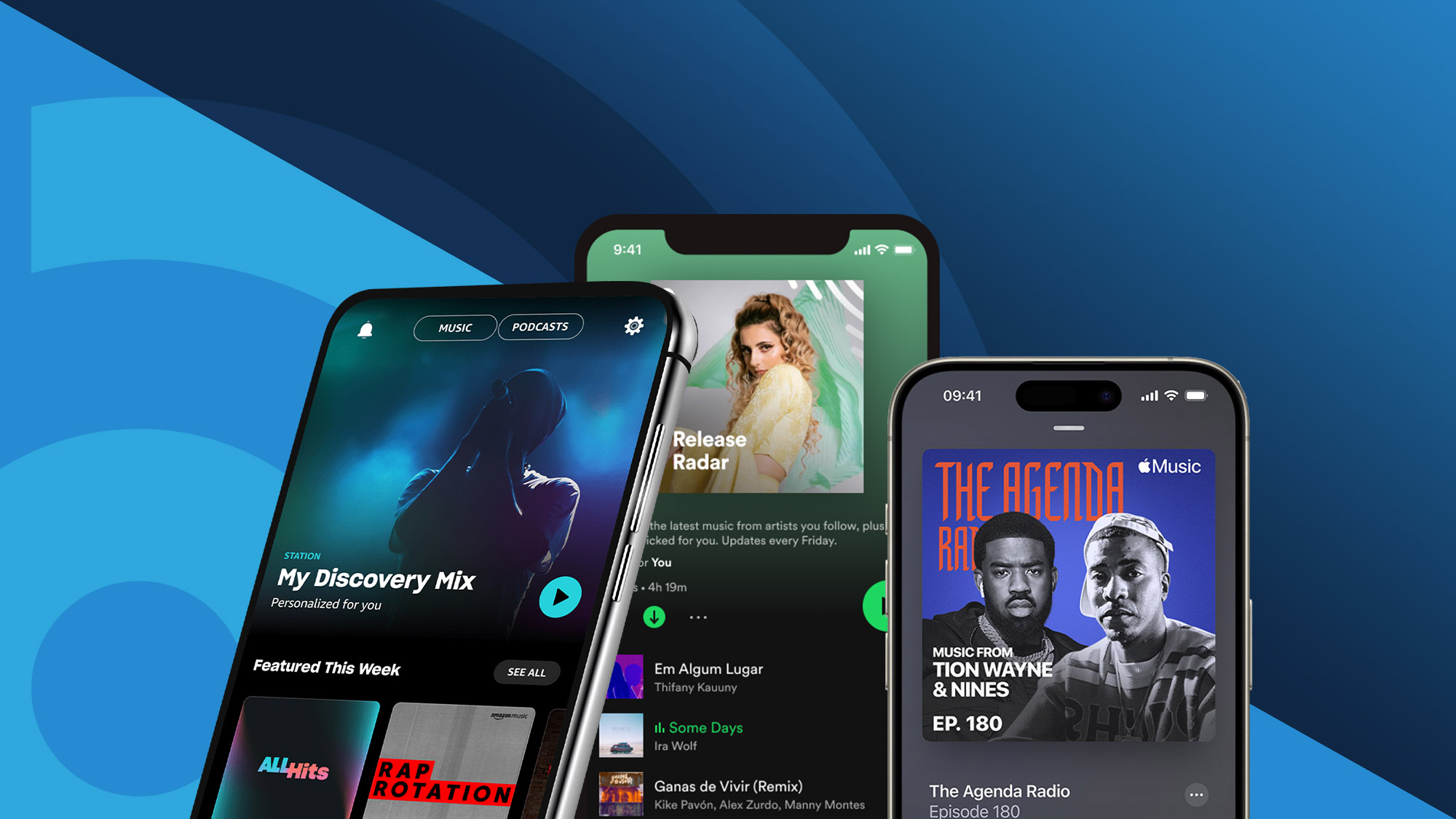
Music streaming has never been more accessible, or more overwhelming. With the best music streaming services offering millions of tracks, podcasts, audiobooks, and exclusive content across all your devices, the choice can be dizzying.
That’s where we come in. Our expert audio team has tested all of the best music streaming services hands-on for weeks at a time. From sound quality and pricing tiers to recommendation engines and hi-res support, we’ve tested every feature using a range of formats and music players – then used our years of experience to narrow it down to the very best.
Whether you're after spot-on recommendations or audiophile-level quality, this guide will help you find the best music streaming service. Want the best possible sound? Be sure to check out our hi-res audio explainer to see which services deliver truly premium listening. Some of the best MP3 players now come with streaming access built in – you’ll just need a subscription. And if you're already signed up to a service you love, pair it with the best earbuds or best headphones to make the most of your new music collection.
The Quick List

The best music streaming service for most people
With an easy-to-use app, excellent recommendations, best-in-class social features and a library of audiobooks, podcasts and music tracks, Spotify is still the king of music streaming – at least for now.

The best music streaming service for audiophiles
Proving Spotify isn’t the only service with a huge library of music, Tidal not only has an extensive selection of tracks but it’s an audiophile’s must-have streaming service thanks to its exceptional sound quality.

The best music streaming service for hi-res audio
Qobuz isn’t as cool as Tidal and doesn’t have the recommendation engine of Spotify, but if you’re looking for hi-res audio downloads, this is hands-down the best music streaming option for you.
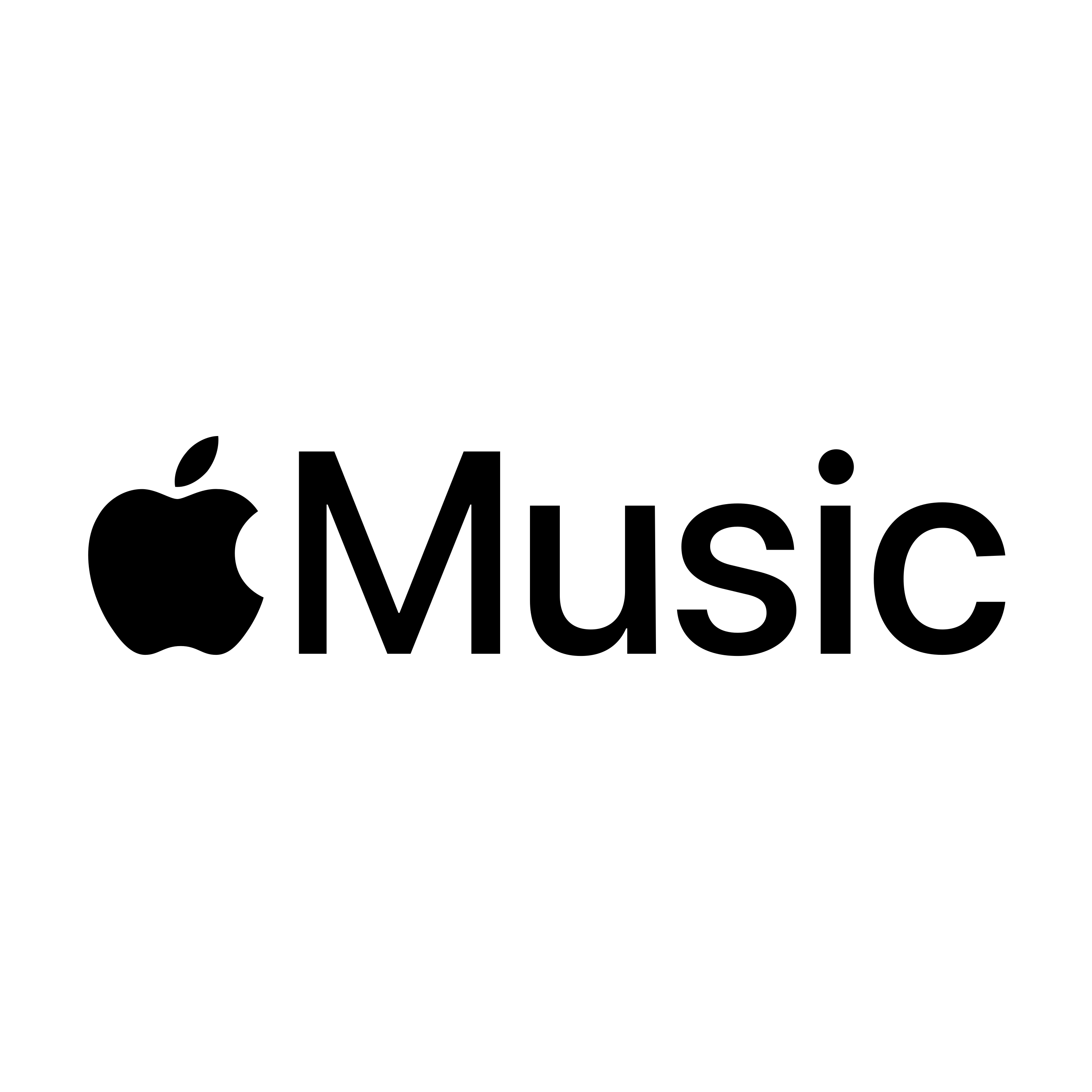
The best music streaming service for Apple fans
Honestly? Apple Music offers such a similar service to rivals that if you love Apple products it’ll make the most sense for you. It works well, delivers spatial and lossless audio and will play nicely with all of your other devices.

The best music streaming service for Prime members
Prime members get a discount off Amazon Music Unlimited, making it a solid choice. You’ll also get access to quality high-res audio and an interface that isn’t as slick as rivals but is easy to use.

The best music streaming service for features
Deezer has some fun community features, like quizzes, that set it apart from rivals. It may not be the best offering in this guide, but it’s nice to use and one of the most established music streaming services around.
The best music streaming services of 2025
Why you can trust TechRadar
The best music streaming service for most people
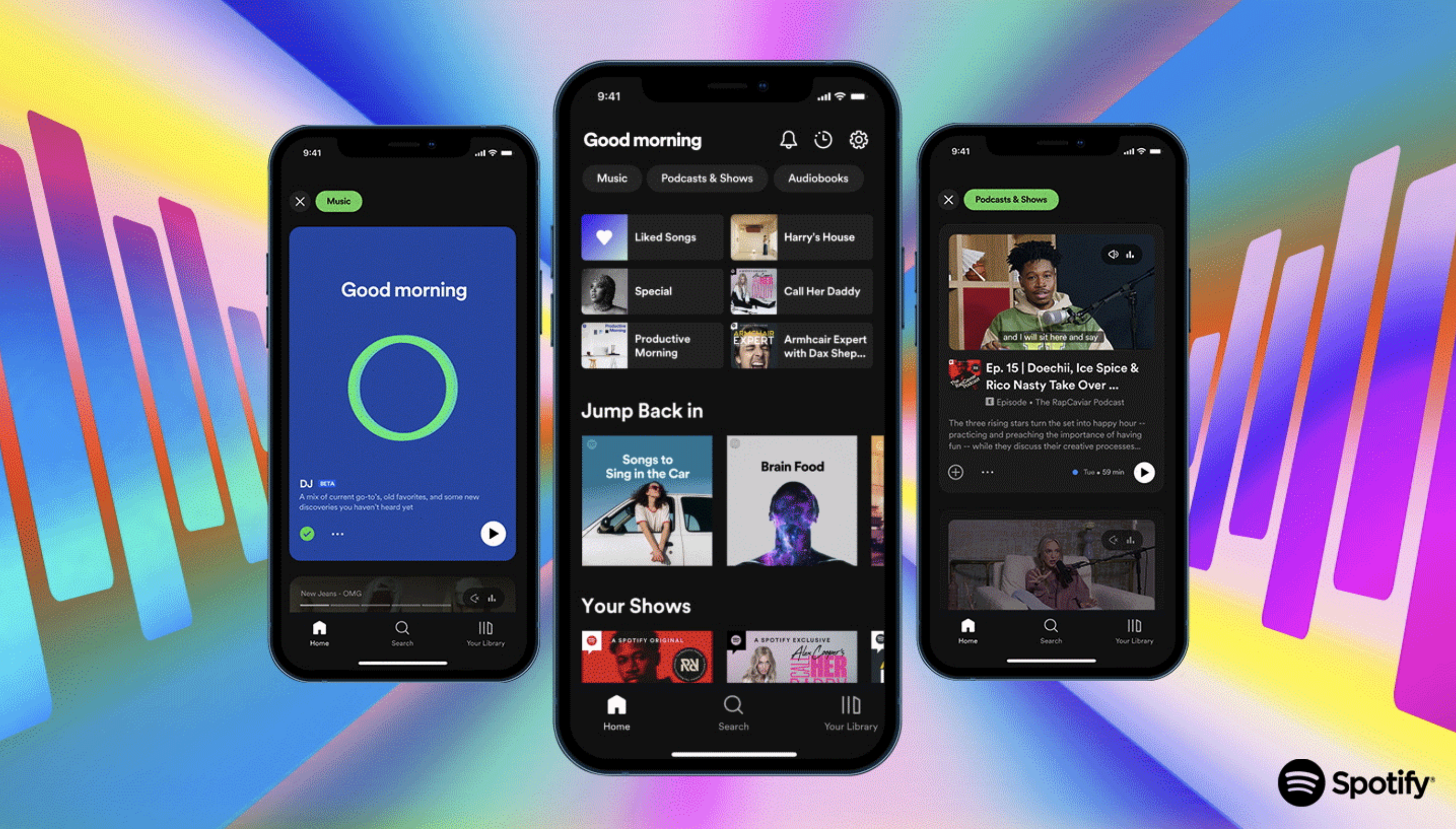
Reasons to buy
Reasons to avoid
Spotify is the best music streaming service for most people. In many ways, it’s not just a music streaming service but an entertainment hub, boasting 100 million tracks, 6.5 million podcasts, 350,000 audiobooks and courses.
However, Spotify is more than a sizable library of aural delights. It also has a fantastic recommendation engine that learns your tastes and curates personalized playlists. My current favorite is Daylist, which changes throughout the day based on the types of music you usually like to listen to. Not only is it spookily accurate, but it’s incredibly fun.
Spotify is a playground of social sharing, themed playlists and captivating visuals. We also love that it has a constant influx of innovative features, like the fact it's working on letting you speak to its AI DJ and has launched a Concerts Near You playlist, making it easier for you to see if your favorite artists are performing in your area. Its versatility across various devices also ensures you can revel in its offerings wherever you are. While a UI update wouldn't hurt, navigating Spotify is a breeze, regardless of your listening platform.
Admittedly, Spotify falls short in one aspect: the audio quality. Competitors like Tidal and Qobuz offer superior lossless tracks. However, Spotify has promised a game-changer, Spotify HiFi, a lossless, CD-quality offering. While it's yet to materialize, the prospect of this upgrade is something to look forward to.
Read our full Spotify review
The best music streaming service for audiophiles
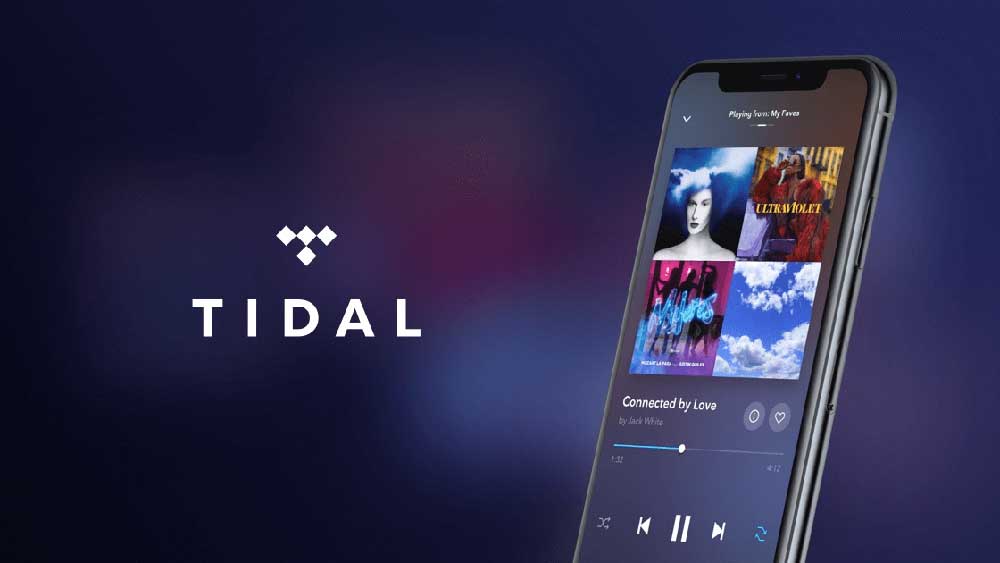
Reasons to buy
Reasons to avoid
Tidal is the best music streaming service for audiophiles, offering an excellent listening experience and a library to rival Spotify’s, complete with curated playlists and exclusive content. Oh, and since April 2024, the service offered its hi-res streaming option at an Apple Music-matching price – ie. $10.99 / £10.99 / AU$12.99 per month.
Tidal used to offer different levels of audio quality depending on the tier, but not any more. High-resolution and lossless audio now come as standard with every paid-for subscription.
Launched in 2014, Tidal differentiates itself by emphasizing superior lossless and high-resolution sound quality and fairer artist compensation, boasting more than 110 million tracks and a polished interface that might be my favorite in this guide.
While it mirrors Spotify a little in appearance, Tidal excels in delivering CD-quality audio, making it ideal for users with high-end audio equipment, like the best noise-cancelling headphones and the best surround sound system.
Despite facing competition from services like Deezer, Apple Music, Amazon Music Unlimited, and Qobuz, Tidal’s unique blend of exclusive content, ease of use, and audio fidelity secures its spot as the preferred option for discerning listeners. But for those unsure about the Tidal hype, you can try a 30-day free trial to hear the audio upgrade for yourself.
Read our full Tidal review
The best music streaming service for hi-res audio
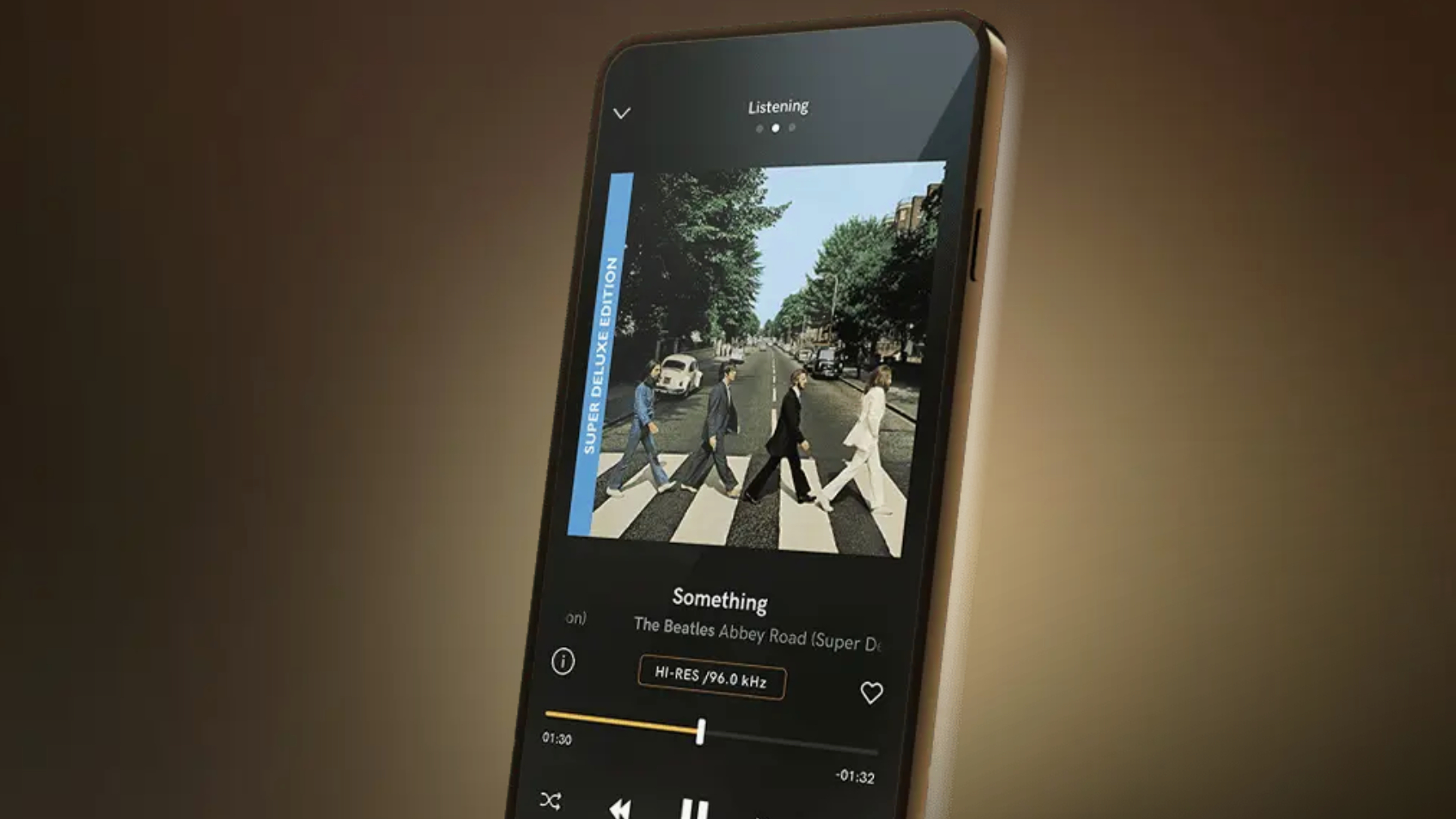
Reasons to buy
Reasons to avoid
Qobuz is a streaming service for the discerning listener who knows what they like and likes it in hi-res – maybe as downloadable digital albums bought at a discount on the Qobuz download store.
Qobuz might not be as AI savvy or social media adjacent as Spotify, or as rock 'n' roll as Tidal, but you'll find plenty of exclusive editorial content (created by actual humans), a clear design and easy-to-find hi-res playlists with full resolution transparency – that's Qobuz's admirable USP. Speaking of admirable, Qobuz has also published figures revealing how much it really pays per stream, something none of its rivals have been willing to do so far.
The French music service also offers any music lover the chance to rent and purchase hi-res music even if they don't subscribe. That said, you'll get up to a 60% discount on your hi-res purchases if you do pay for its top-tier Sublime subscription, which includes on- and offline ad-free listening, a competitive catalog and all resolution clearly displayed.
It may not add as many new and exciting features as the likes of Spotify, but it is constantly evolving. Late last year, Qobuz added Direct Stream Digital (DSD) and Digital eXtreme Definition (DXD) audio formats to its service. This now allows listeners to enjoy more than 22,500 tracks mainly in DSD format.
The name comes from an ancient bowed musical instrument called kobyz, which has two strings made of horsehair. But although Qobuz is happy to look back into music history, it's thoroughly modern in its output of hi-res files – more so than most rivals we've tested.
Read our full Qobuz review
The best music streaming service for Apple fans
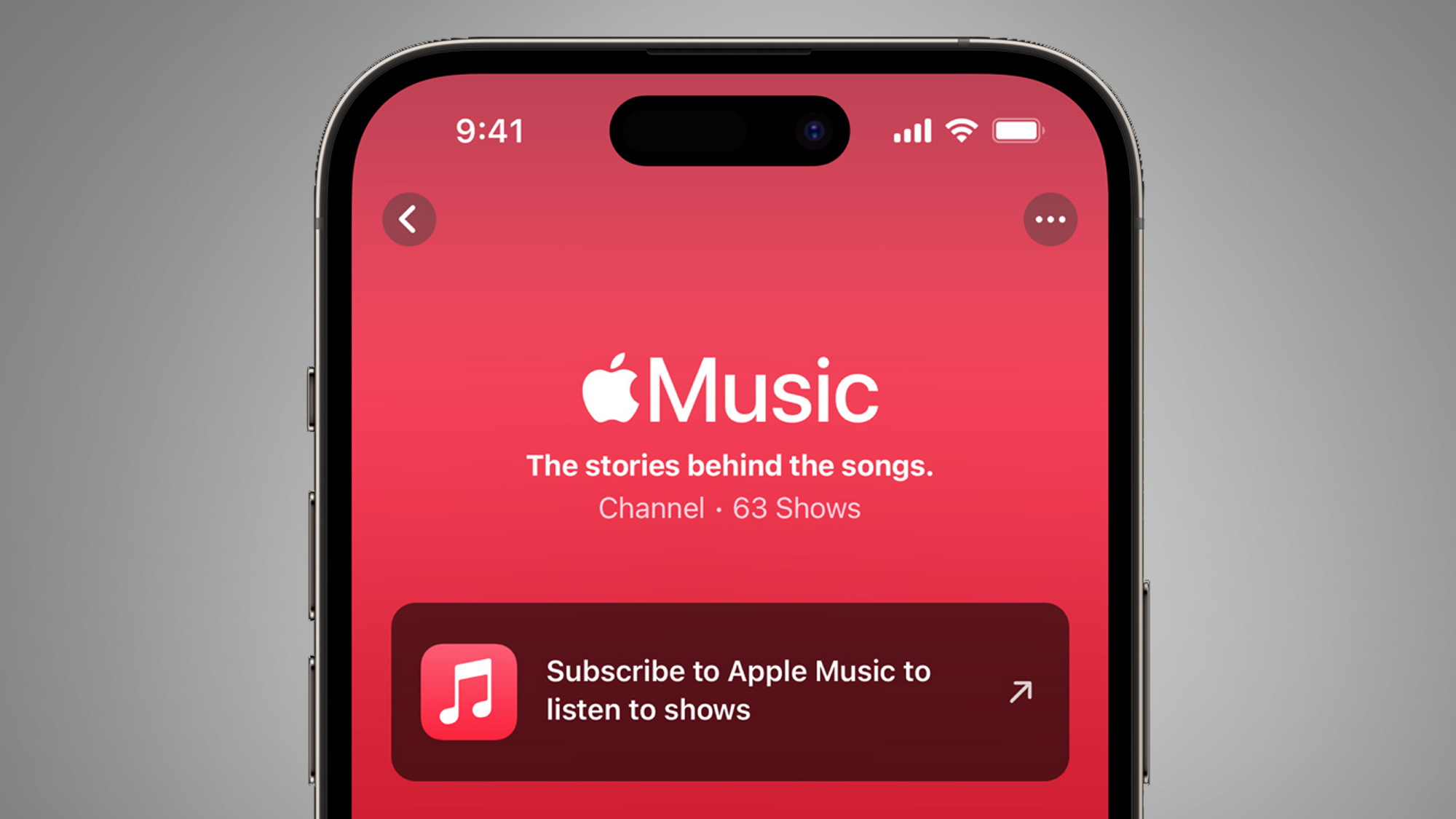
Reasons to buy
Reasons to avoid
Apple Music is the best streaming service if you love Apple and you own an iPhone and AirPods. As you might expect, it offers seamless integration with Apple products, but it also boasts superior sound quality now, including Lossless Audio, Spatial Audio, Dolby Atmos support, and a robust recommendation engine.
Since its 2015 launch, Apple Music has expanded its catalog to more than 100 million tracks, matching Spotify's library size but focusing on a richer listening experience. Although it might lag behind Spotify in social features and playlist personalization, Apple Music's discovery tools, including curated playlists, music videos, and 24/7 digital radio do a good job at suggesting new tracks and artists.
Apple Music might be our top choice for Apple users, but it also makes a lot of sense for lovers of classic music, too, as there's a separate Apple Music Classical app. Apple Music Classical is also now available on the web and doesn't cost any more for subscribers.
The service stands out for allowing users to blend owned music with its vast streaming library. Apple Music also distinguishes itself with high-quality audio, available to subscribers at no additional cost, provided they have compatible equipment. Apple Music's Hi-Res Lossless offering (which is growing, although it is hard to know just how much of its catalog is available in this resolution) uses Apple's own Apple Lossless Audio Codec (ALAC) format, with a maximum resolution of 24-bit/192 kHz – but do note that you'll need wired headphones and a decent headphone DAC to hear that file quality at its fullest (your iPhone and AirPods can't deliver it over Bluetooth – no Bluetooth-only headphones can). Back to Apple Music though and this focus on sound excellence makes it a rival to other services in this guide, like Qobuz and Tidal, especially for those looking for a higher-res alternative to Spotify.
Read our full Apple Music review
The best music streaming service for Prime members
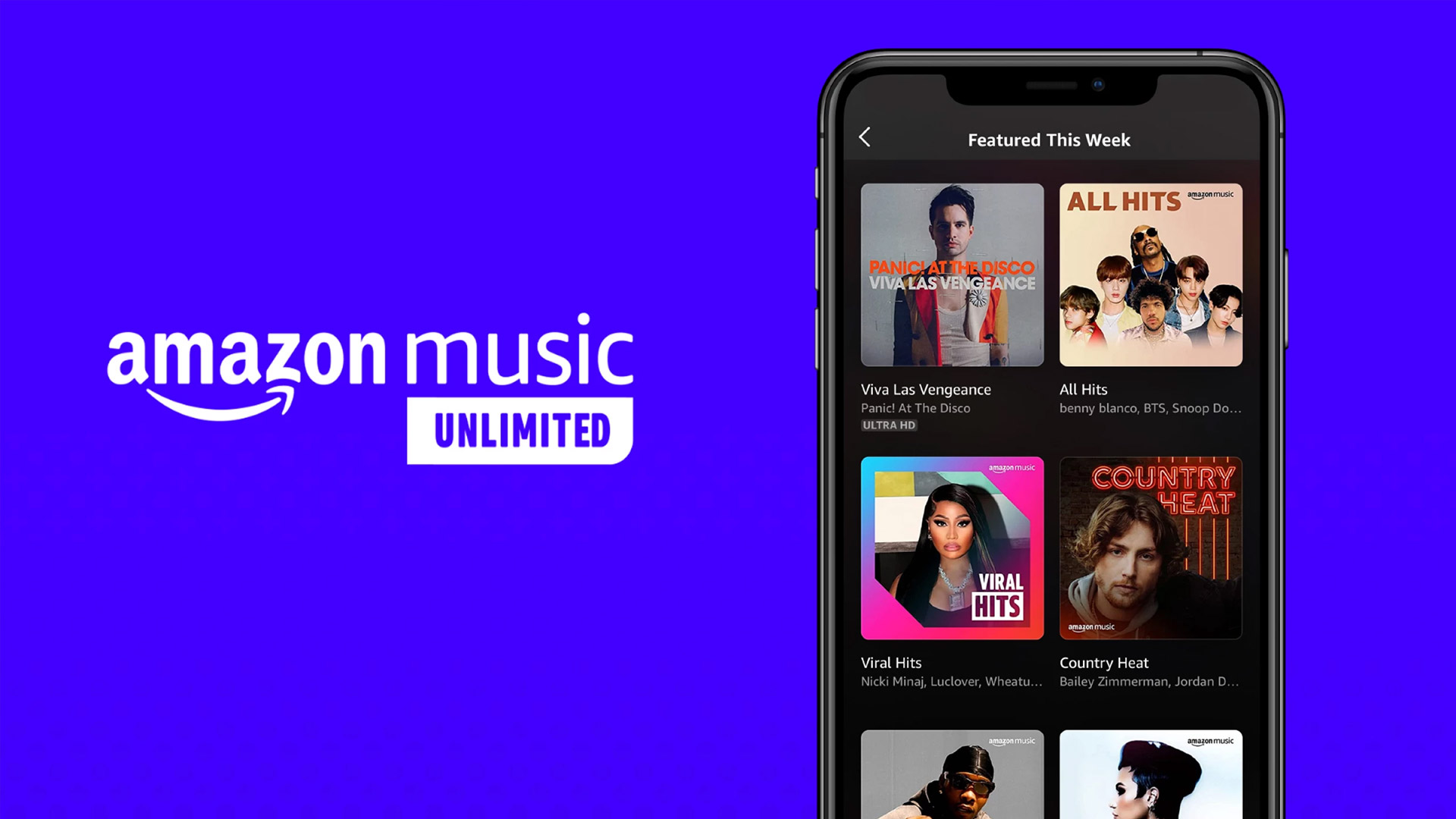
Reasons to buy
Reasons to avoid
Amazon Music Unlimited has long been our top recommendation for Prime members. But it is worth mentioning Amazon Music Unlimited had a price hike earlier this year that no longer makes it a no-brainer for us to recommend and puts it at the same price as competitors, like Spotify.
Like most of the streaming services in this guide, it has a huge catalogue of more than 100 million tracks and it combines CD-quality and "Ultra HD" audio files for those looking for the best sound quality. While its interface and recommendation algorithms may not match the polish of competitors, its extensive selection and high-fidelity streaming options make it a top choice, particularly for Amazon Prime members because you’ll get a discount on the subscription – though considering the recent price increase that's not quite as appealing as it once was.
This service consolidates Amazon's various music offerings into a single, streamlined platform, providing a range of listening options from free, ad-supported access to premium, lossless audio experiences. Unlike its rivals, Amazon Music Unlimited offers lossless FLAC audio up to 24-bit/192kHz, surpassing Spotify’s 320kbps streams, making it a solid choice for audiophiles.
Beyond its audio quality and expansive library, Amazon Music Unlimited offers seamless integration with Alexa and the broader Amazon ecosystem. This is why it's still our top recommendation for those who like Amazon products, as it does work well with them. But then again, it isn't that hard to pick a rival instead and switch to your preferred platform.
Read our full Amazon Music Unlimited review
The best music streaming service for features
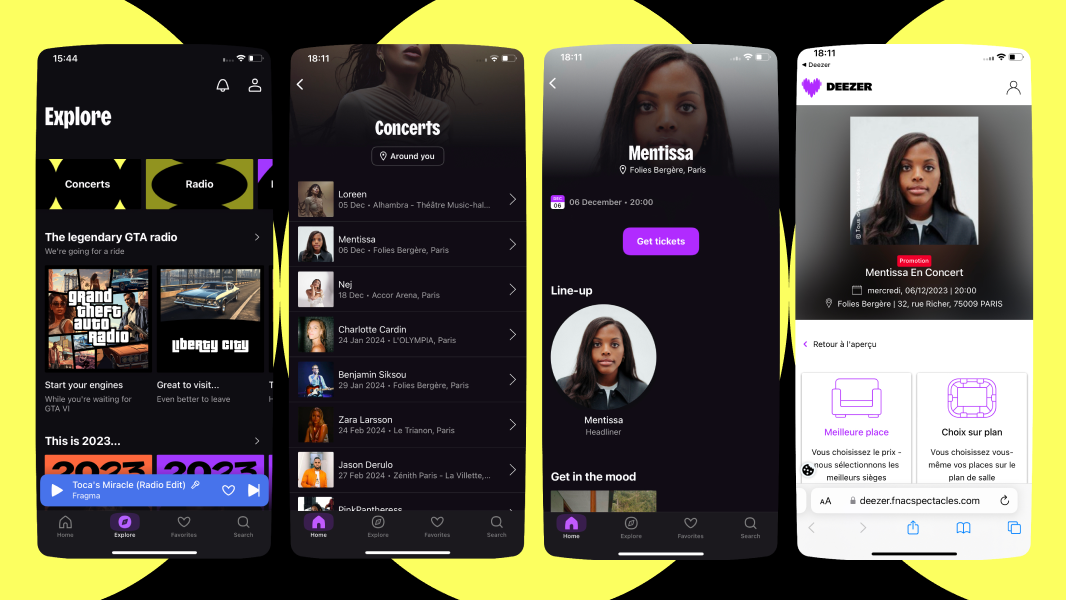
Reasons to buy
Reasons to avoid
Deezer has a library of more than 120 million tracks, all offering CD quality audio, ie. the benchmark for hi-res audio. While it may not be the leading choice for everyone, its minimalistic approach, combined with sound at 16-bit/44.1kHz, or 1411kbps – akin to Tidal and Apple Music's base output, although not its higher resolutions (so nothing up to 24-bit/192kHz) – makes it an appealing alternative for anyone look for simplicity over personalized recommendations.
Since it first launched in 2007, Deezer has maintained relevance in an increasingly competitive market, offering a free, ad-supported version alongside premium tiers. Unlike Spotify, Deezer focuses less on social integration and predictive algorithms, opting instead to provide quality audio and a variety of content, including podcasts and unique tools, like Songcatcher for music identification. Its curated playlists and the Flow feature do bring a fun tailored listening experience, though we don’t think it matches Spotify’s personalized precision.
Deezer’s user interface prioritizes minimalism, good news for those who might be overwhelmed by the complexity and cluttered design of its competitors. This simplicity, alongside its comprehensive music selection and higher bitrate streaming, positions Deezer as a worthy option for those valuing sound quality and straightforward functionality over extensive features.
Read our full Deezer review
How to choose the best music streaming service
If you don't have any specific requirements for a new music streaming service and want to play music on all your devices, make playlists and see recommendations, you can't go wrong with any of the options on this list.
They all largely offer the same kind of service with a huge choice of music and cool discovery features. But if you're looking for something specific in terms of experience, audio performance or interface, that's when you can be pickier.
For example, although all the music streaming services we've included below have a similar interface, they're not the same. If the service you have in mind has a free trial, it's worth signing up to see if you like how it works and looks. Most people will get the hang of any new app after a week or two, but we found Spotify and Tidal to be the slickest and most intuitive.
What's more, you'll need to check if your favorite artists are available on the music streaming platform you're considering signing up for. These days, most artists are on most platforms, but a few still crop up on some and not others.
Over the years, many of the best music streaming services in this list have also improved the quality of the tracks they offer, with Apple Music and Amazon Music Unlimited now both adding high-res audio to their platforms.
Finally, if music discovery is important to you because you're overwhelmed by the millions of tracks you could be listening to each day, you'll find solid reacommendations from all of these services but Spotify is the best.
How we test the best music streaming services
Premium tiers: We tested the best music streaming services by signing up for the premium tier of each, so we could get a good indication about what the experience is like at the highest audio quality setting.
Equipment: We also made sure we were using high-end audio equipment to get the best possible experience, testing the services on a range of the best headphones and best noise-cancelling headphones. We listened from a range of devices as well, including different smartphones, laptops and speaker systems.
Recommendations: To make sure we were testing the recommendation engines fully we made sure we were actively listening to our favorite tracks and artists, favoriting them and adding them to our own playlists in order to get the most from the customized ones that would be generated a few days and weeks into testing.
Features: Other than those specific points, we also tested all of the major features of the best music streaming services, like social sharing, playlist creation, audiobooks, lyric viewing, quizzes and more. We know that everyone uses the best music streaming services in different ways and wanted to be sure we were testing everything that matters.
To find out more about our review process and why you can trust our recommendations, you can also read our dedicated how we test explainer.
Latest updates to the best music streaming services
March 21, 2025
Refreshed the introduction to include more information about our testing process.. Checked the entire guide to ensure all prices and key features are up to date. Added in new updates and news articles that are relevant.
Get daily insight, inspiration and deals in your inbox
Sign up for breaking news, reviews, opinion, top tech deals, and more.

Becky became Audio Editor at TechRadar in 2024, but joined the team in 2022 as Senior Staff Writer, focusing on all things hi-fi. Before this, she spent three years at What Hi-Fi? testing and reviewing everything from wallet-friendly wireless earbuds to huge high-end sound systems. Prior to gaining her MA in Journalism in 2018, Becky freelanced as an arts critic alongside a 22-year career as a professional dancer and aerialist – any love of dance starts with a love of music. Becky has previously contributed to Stuff, FourFourTwo and The Stage. When not writing, she can still be found throwing shapes in a dance studio, these days with varying degrees of success.